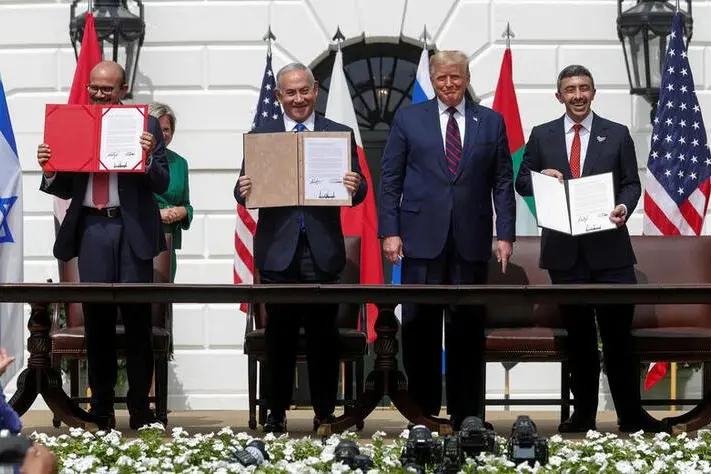PHOTO
The signing of the Middle East peace agreement between Israel and two Gulf Cooperation Council (GCC) nations could boost the sovereigns’ economies, analysts have said.
The Abraham Accords or the bilateral normalisation agreements could increase cooperation between Israel and the UAE and Bahrain, particularly in the areas of tourism, security, telecommunications, technology, health, education, financial services and agriculture, the S&P said.
A major outcome from the landmark agreement, the ratings agency said, is that it will pave the way for the operation of commercial flights between the signatories, thereby providing a much-needed boost to the economies.
“It is too early to tell if there will be any material economic benefits. However, with the removal of the UAE and Bahraini boycotts on Israel, we expect these countries will begin direct commercial flights with Israel,” said S&P.
“It is also likely that the parties to the Abraham Accord will establish reciprocal embassies at some point,” S&P added.
On September 15, officials from UAE, Bahrain and Israel signed the historic deal to normalise relations.
This follows the UAE and Israeli governments’ announcement on August 13 that the UAE would normalise relations in exchange for Israel suspending plans to annex large parts of the Palestinian territories. Bahrain agreed to normalise relations with Israel on September 11.
The UAE had earlier stressed that the agreement highlights its sovereignty over its own decisions and that it is not biased against any parties. In a statement, it said it mainly aims to differentiate between political stances and normal relations, which it believes will open new prospects of prosperity and stability in the region.
“The UAE stresses that it is not changing its stance to support the establishment of a Palestinian state based on the borders of 4th June, 1967, with East Jerusalem as its capital, in compliance with legitimate international resolutions and the Arab Peace Initiative,” state news agency WAM said.
(Reporting by Cleofe Maceda; editing by Mily Chakrabarty)
Disclaimer: This article is provided for informational purposes only. The content does not provide tax, legal or investment advice or opinion regarding the suitability, value or profitability of any particular security, portfolio or investment strategy. Read our full disclaimer policy here.
© ZAWYA 2020





















